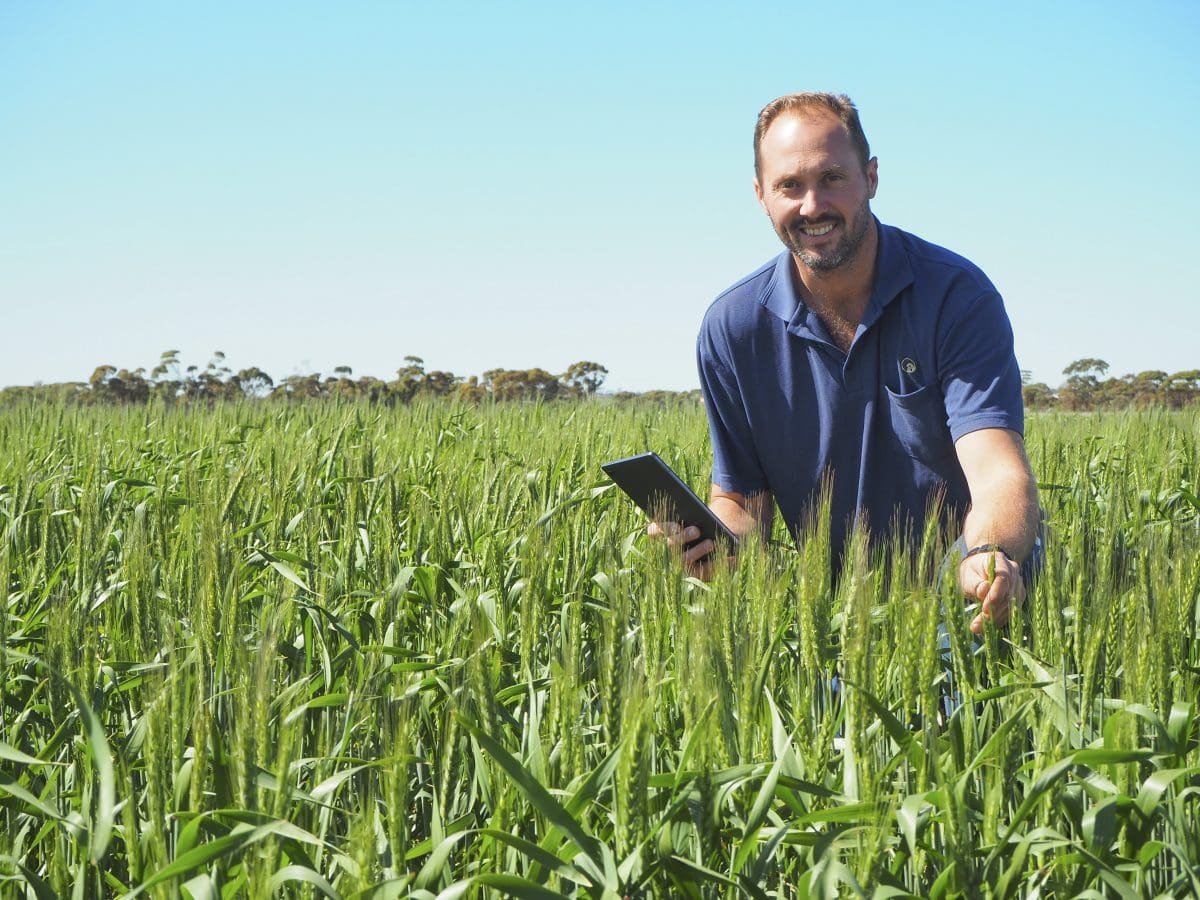
DPIRD research scientist Dion Nicol in the Merredin Research Station’s wheat heat tolerance nursery. Photo: DPIRD
TRIALS have been sown at Merredin and Kununurra in Western Australia as part of new research to develop more heat-tolerant wheat varieties that boost business resilience, sustainability and profitability.
The five-year project led by the University of Sydney is a collaboration between WA’s Department of Primary Industries and Regional Development (DPIRD), the Grains Research and Development Corporation (GRDC), InterGrain and Agriculture Victoria.
The project will develop pre-breeding lines to be progressed by breeding company InterGrain, co-owned by the GRDC and the WA Government, before being released to all commercial entities and researchers two years after validation.
More than 200 novel lines have been developed using genetics from the International Maize and Wheat Improvement Centre, known as CIMMYT, the International Centre for Agricultural Research in the Dry Areas (ICARDA), the university’s Plant Breeding Institute and several existing control varieties.
DPIRD research scientist Dion Nicol said the first year of field trials had been established at the department’s Merredin Dryland Research Institute, as well as its Frank Wise Research Institute at Kununurra.
“The Merredin site is typical of environments that can experience heat shock during grain filling,” Dr Nicol said.
“The Kununurra site will act as a control site with considerably higher temperatures but potentially with more acclimation to heat by the time the crop reaches grain filling.
“The sites will form part of a national trial network, together with a planned future site at Mullewa and two interstate sites at Griffith and Narrabri in NSW, alongside up to 40 InterGrain trial sites.”
This project builds on previous research by the University of Sydney that developed heat-tolerant germplasm, or plant material, to further explore the physiological responses to heat stress, alongside genetic traits.
“We are currently monitoring crop development and analysing yield and grain quality parameters to get a deeper understanding of physiological responses to heat stress that result in greater stability of grain yield and quality,” Dr Nicol said.

InterGrain CEO Tresslyn Walmsley
“This data will support the genetics research component of the project to identify molecular markers for heat tolerance during grain fill, in high-yielding and heat-resistant germplasm.”
InterGrain chief executive officer Tresslyn Walmsley said the unique project aimed to accelerate the development of new varieties through pre-breeding advances.
“Ultimately, the project will provide new heat tolerant varieties that are better adapted so growers can maintain and increase wheat yields, while reducing the risk of downgrading grain due to the impact of heat stress during grain fill,” Ms Walmsley said.
“This is complex research and the time frame for delivery of new varieties is at least 10 years away, reflecting the commitment of all the project partners to protecting the long-term competitiveness of the Australian grains industry.”
GRDC genetic technologies officer Prameela Vanambathina said heat tolerance was a significant constraint for Australian grain growers, with modelling indicating an average 14 per cent yield loss to heat stress across Australia each year.
“This investment will make a significant impact in improving the yields of Australian wheats under current and future climates,” Dr Vanambathina said.
University of Sydney project leader Richard Trethowan said research partnerships of this nature were essential to achieving real outcomes for Australian grain growers.
“Our partnerships with DPIRD and InterGrain are essential to delivering the significant benefits of heat tolerance research to grain growers in WA,” Professor Trethowan said.
“While we know more about the genetic control of wheat heat tolerance than ever before, we are never really sure of its value until materials are validated in important wheat growing areas nationally.”
Source: DPIRD



HAVE YOUR SAY